If you take good care of your teeth but still can’t achieve that pearly white shade, this dentist might be able to help with your dilemma.
Dr Zainab Mackie explained that a lot of people who think they do a good job of caring for their oral health are actually making major mistakes.
And as a result of this, your teeth might have that dreaded yellow hue rather than that lovely white colour we all want.
There are a few things we can do to keep our smile shining, such as brushing and flossing regularly, getting regular cleanings and avoiding consuming things which might stain our teeth.
But what if you’re already doing all of that stuff and still seem to have discolouration on your gnashers?
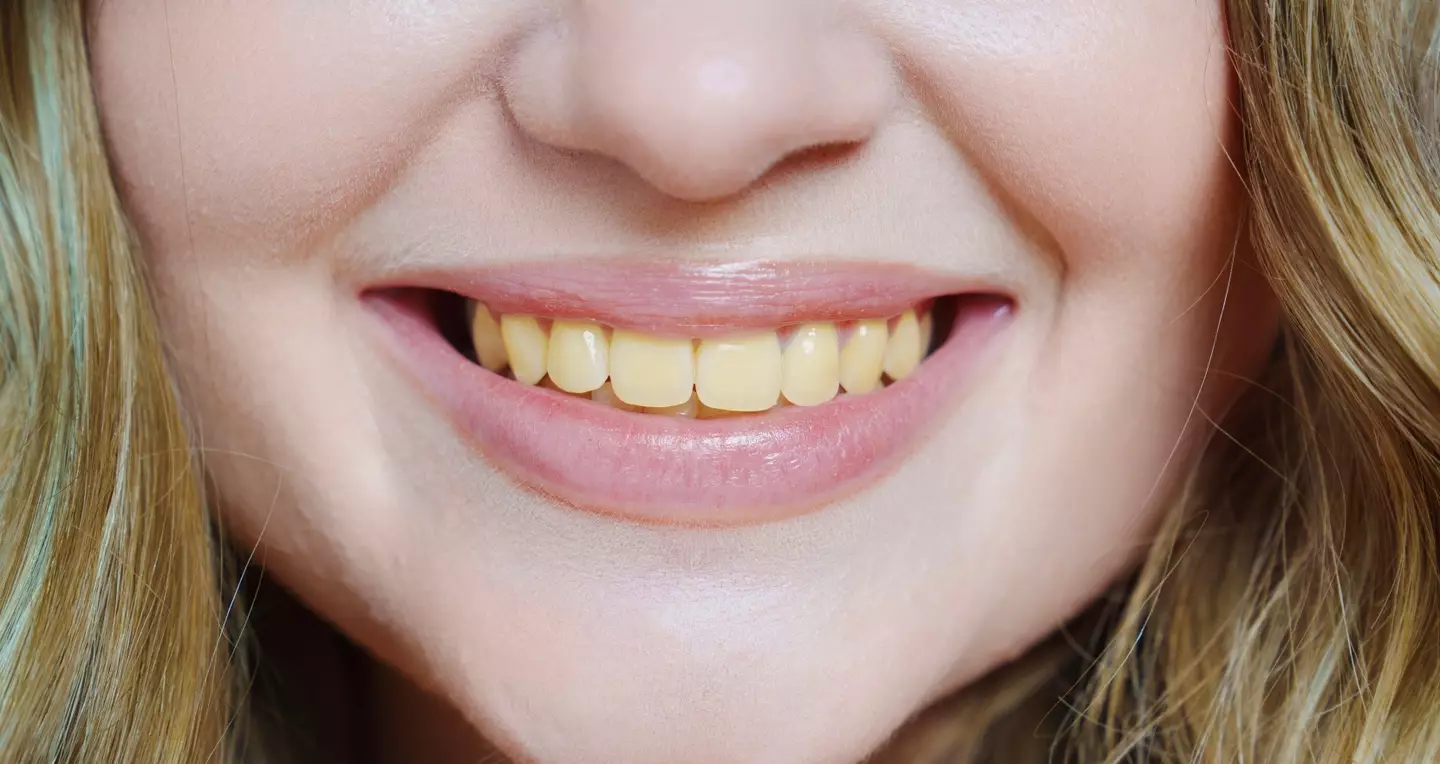
The dentist explained why you might have yellow teeth despite taking good care of them (Getty Stock Image)
Well, according to Dr Mackie, you are probably committing one of these cardinal sins despite being under the illusion you’re an amateur oral health expert.
The dentist, from the US state of Michigan, shared a TikTok video responding to a concerned bloke who said he ‘brushes everyday’ but ‘still has yellow teeth’.
She kindly offered the social media user some advice, explaining there could be a few possible reasons for this.
What could be causing yellow teeth?
Brushing too hard
“You might be brushing too hard, stripping away that white enamel,” Dr Mackie said.
The hard outer layer which coats our teeth and protects them from damage can erode away over time, but you can really speed up the process if you’re being too enthusiastic with your toothbrush.
Aggressive brushing ‘can erode the tough enamel shield, letting dentin show through, making teeth appear yellow and increasing sensitivity’, according to Willow Tree Dental.
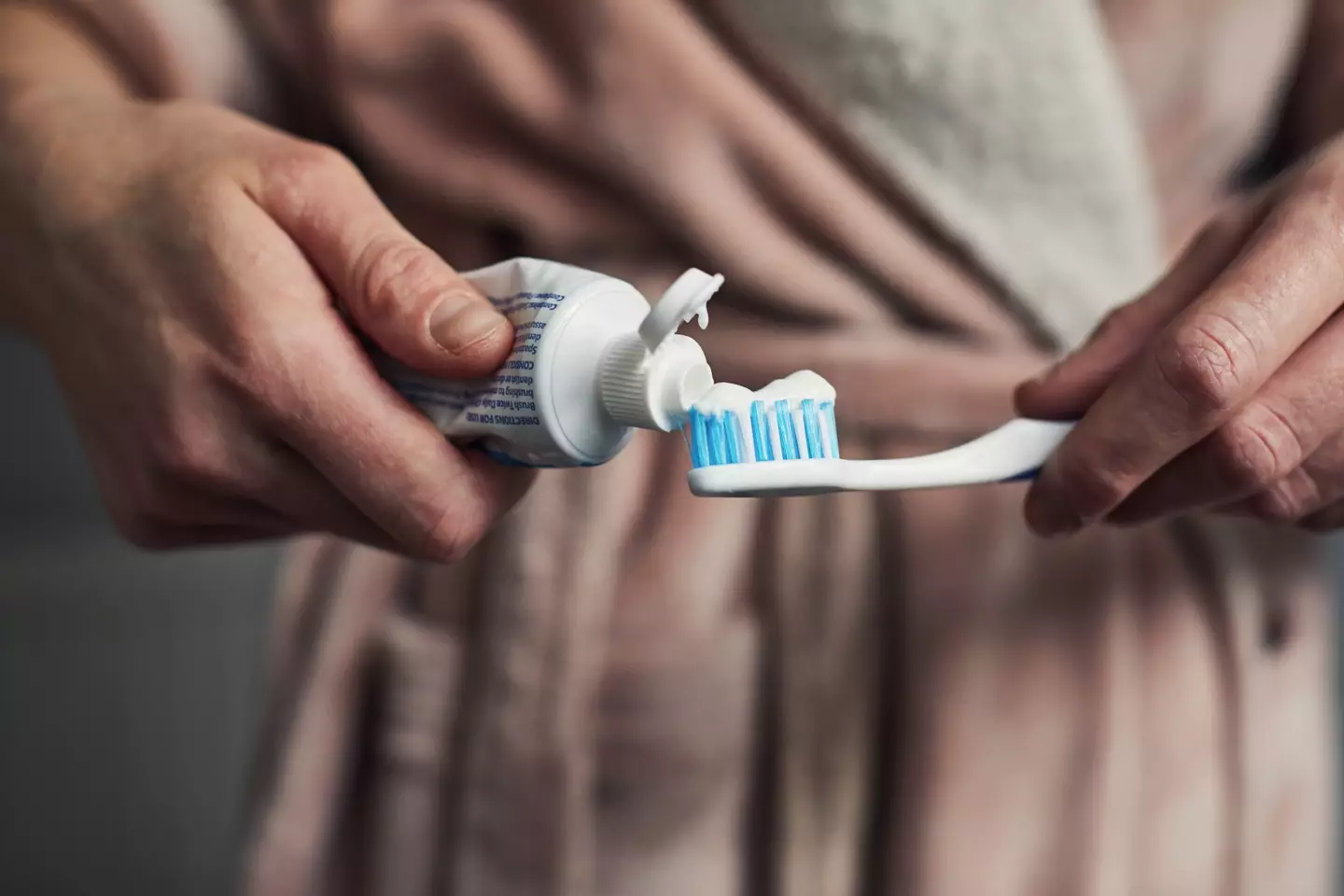
Dr Mackie warned that you might be brushing a bit too vigorously (Getty Stock Image)
As well as this, you are putting yourself at risk of increased plaque buildup, more cavities and even tooth loss – so chill out a bit with your brushing.
Diet and lifestyle
Dr Mackie explained that your diet and lifestyle also has a lot to do with the colour of your teeth.
If you smoke, are on certain medications or are partial to drinks and snacks with staining-power, your gnashers might not be that white anymore.
“If you drink too much pop, that’s going to stain your teeth,” the dentist continued. “Acidic fruit juices are definitely a teeth stainer.”
Think twice before you shove anything vibrantly coloured, sugary or acidic in your mouth, as this could leave a mark on your teeth.
So, how do you avoid yellow teeth?
To keep a glittering smile, Dr Mackie advises avoiding over-brushing and sipping fizzy drinks and juice which can erode your enamel through a straw.
Social media users were grateful for the expert’s insight and flooded the comment section with their thoughts.
One said: “So I’ve been brushing too hard!!”
Another wrote: “Not me drinking orange juice literally after brushing my teeth.”
A third added: “Watching while drinking a whole bottle of coke.”
And a fourth wrote: “Ok, now how do you fix that…”
Featured Image Credit: Getty Stock Image/TikTok/drzmackie
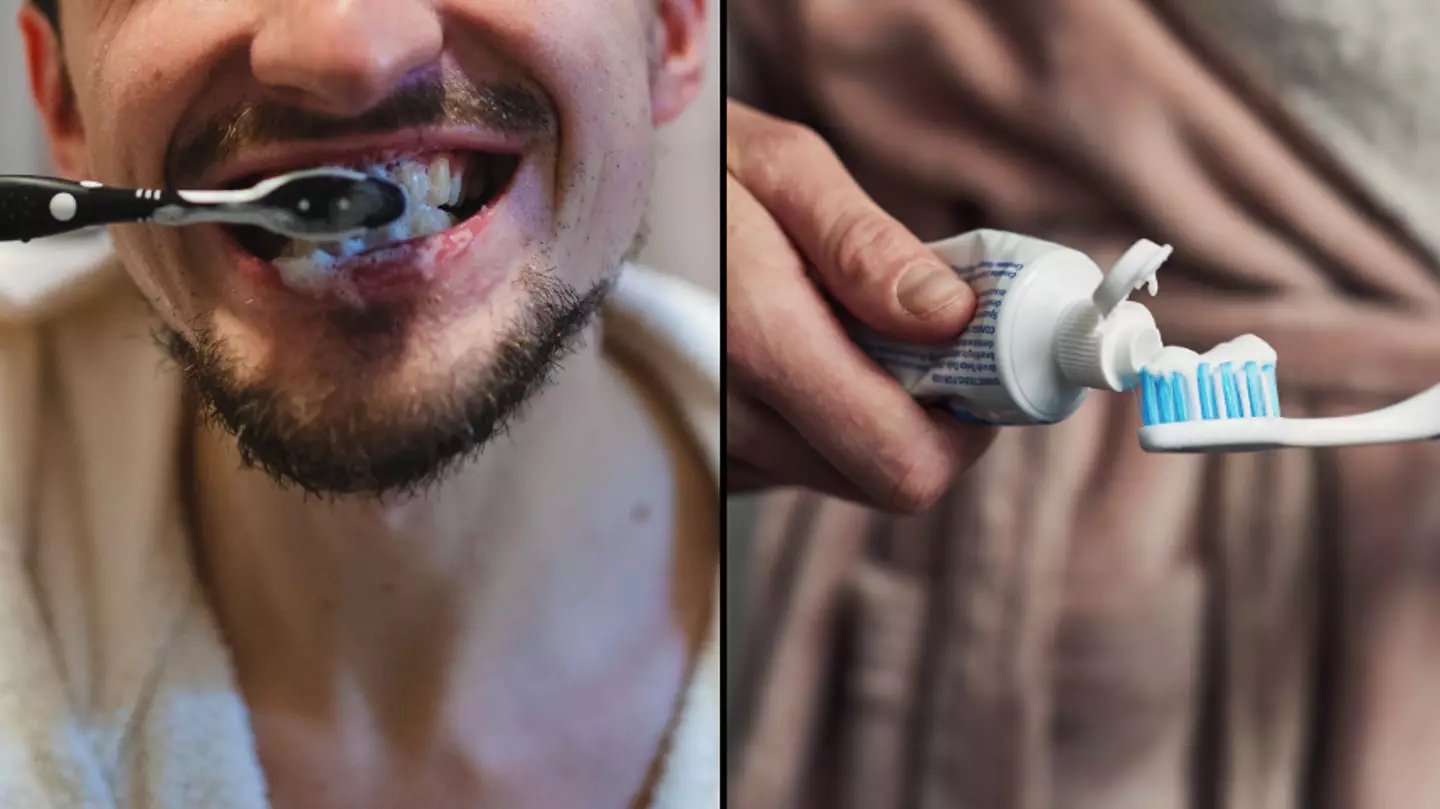
We’re always hearing about how important it is to brush your teeth twice a day.
Most dentists recommend doing so to avoid the build up of plaque, which can cause tooth decay, gum disease, and bad breath.
However, it is equally just as important not to brush your teeth, according to Dr Shaadi Manouchehri.
The London-based dentist has shared the three situations you should ‘never ever ever brush your teeth’.
Situation no.1
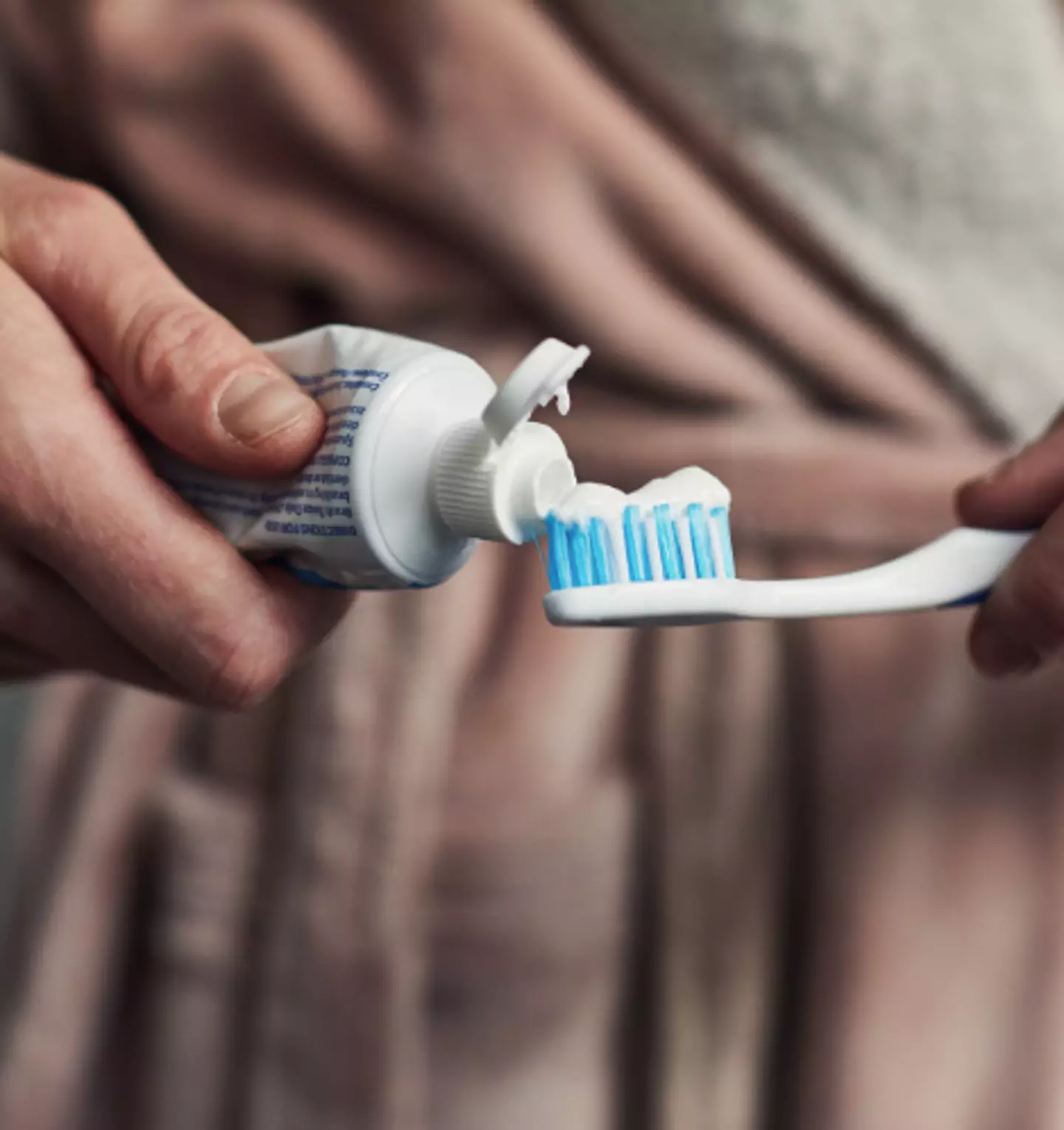
Sometimes it’s ok to not brush your teeth. (Getty Stock Images)
The dentist says it’s really important not to brush your teeth straight after you’ve just vomited.
“This is probably all you want to do after you’ve vomited, but actually the contents of the stomach are extremely acidic, and your teeth are made up of minerals,” Dr Manouchehri explains.
“So when the contents of the stomach have come into the mouth, then the mouth is very acidic.
“And if you brush straightaway, you’re rubbing that acid onto the tooth even more. So wait at least 30 to 60 minutes before you brush your teeth. What you can do instead is rinse out with some mouthwash to begin with and drink some water just to help neutralise that acid quicker.”
Situation no.2
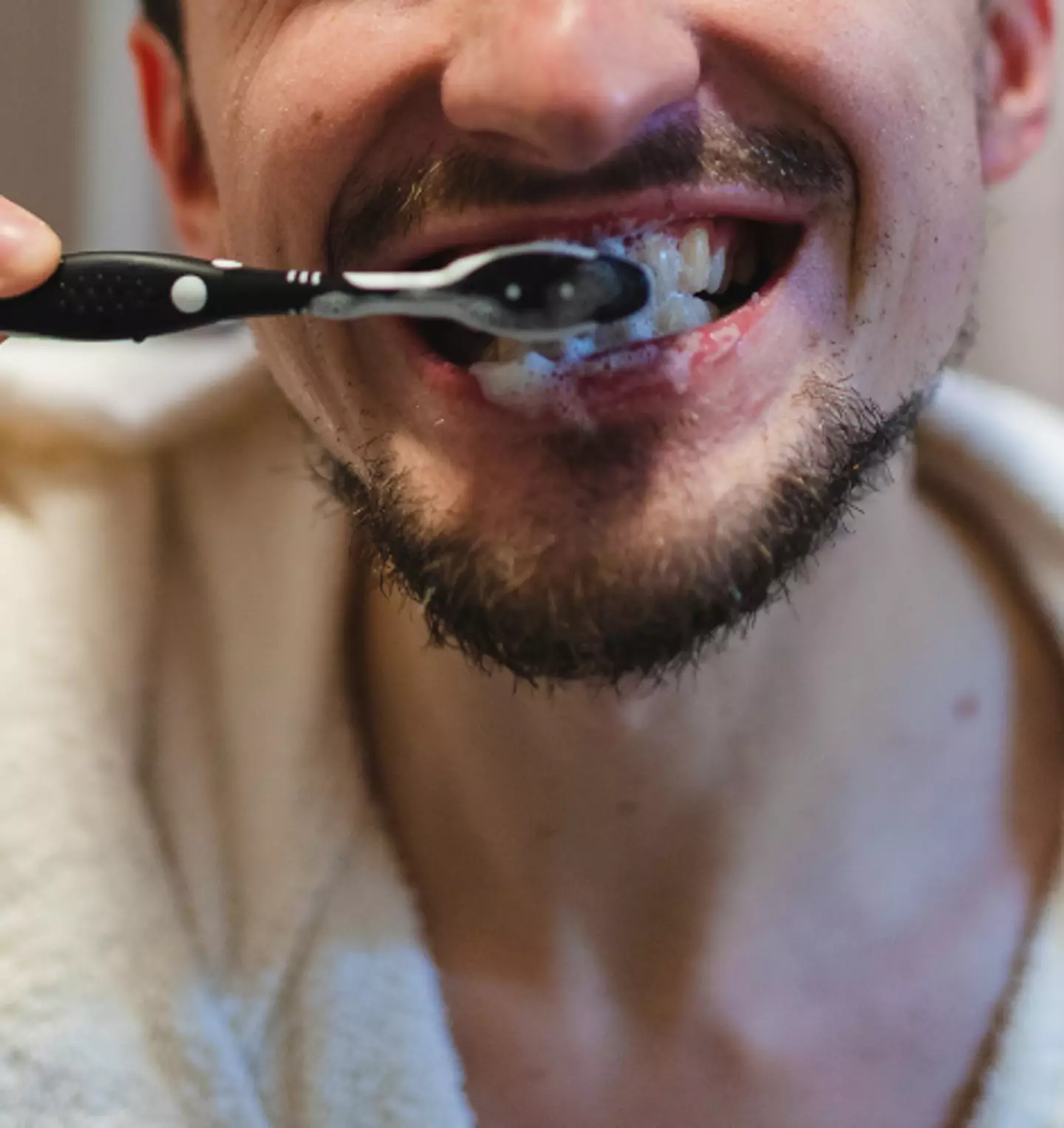
The dentist has revealed the three times you should ‘never ever ever brush your teeth’. (Getty Stock Images)
This one is going to irritate quite a few coffee drinkers, so I apologise in advance.
“Next up, never brush your teeth after you’ve just had coffee,” the dentist said.
“Coffee is quite acidic and especially if you add milk and sugar that can make the acidity even worse.
“Exact same concept, if you go and brush your teeth straightaway, you’re rubbing acid onto the tooth and wearing the tooth away.
“Wait at least 30 to 60 minutes, you don’t actually have to brush your teeth, just rinse out with some mouthwash or drink water.”
Situation no.3
This ties in with brushing your teeth after your morning coffee as Dr Manouchehri says: “Don’t brush your teeth after breakfast, brush them beforehand because if you brush straightaway, you’re going to be damaging your enamel.
“And actually when you first wake up in the morning, you have quite a lot of bacteria in the mouth and that needs to be brushed before you have your breakfast.”
Taking to the comments section, one person thought: “That’s why I brush my teeth first thing in the morning, I don’t understand people who don’t.”
“Brudda i threw up like 30 mins ago and brushed my teeth :(,” a second penned.
“I’ve been brushing after coffee (breakfast) for like 10 years,” added a third.
“I do all of these and my dentist tells me my teeth are some of the best they’ve seen,” a fourth wrote.
Featured Image Credit: Getty Stock Images
.png)
Dentists have finally set the record straight on what time in the morning you should be brushing your teeth.
After we’ve scrolled through our phones, rubbed the sleep from our eyes and finally rolled out of bed in the morning most of us are too preoccupied by making sure we’re dressed and heading out the door on time.
But did you know there’s a right and wrong way to start the day?
Perhaps you feel compelled to scrub away our stale morning breath from the moment our head leaves the pillow or maybe you’re the person who wants to wait until they’ve eaten before brushing so we can feel fresher for longer.
After all, as long as you’re brushing twice a day the specific order of things shouldn’t matter right?
Unfortunately things aren’t that simple and many may be surprised to learn that not cleaning your pearly whites first thing in the morning could be damaging to your oral health.
The argument has been backed up online by multiple dentists, with Anna Peterson explaining exactly why eating before brushing your teeth in the morning can be so harmful.
“When you eat breakfast, your mouth becomes acidic,” she explained in a recent TikTok video.
“So what you’re doing when you brush your teeth after breakfast is brushing the acid into the tooth and this wears away the enamel. And, brushing before breakfast protects your teeth from anything you’re going to eat.”
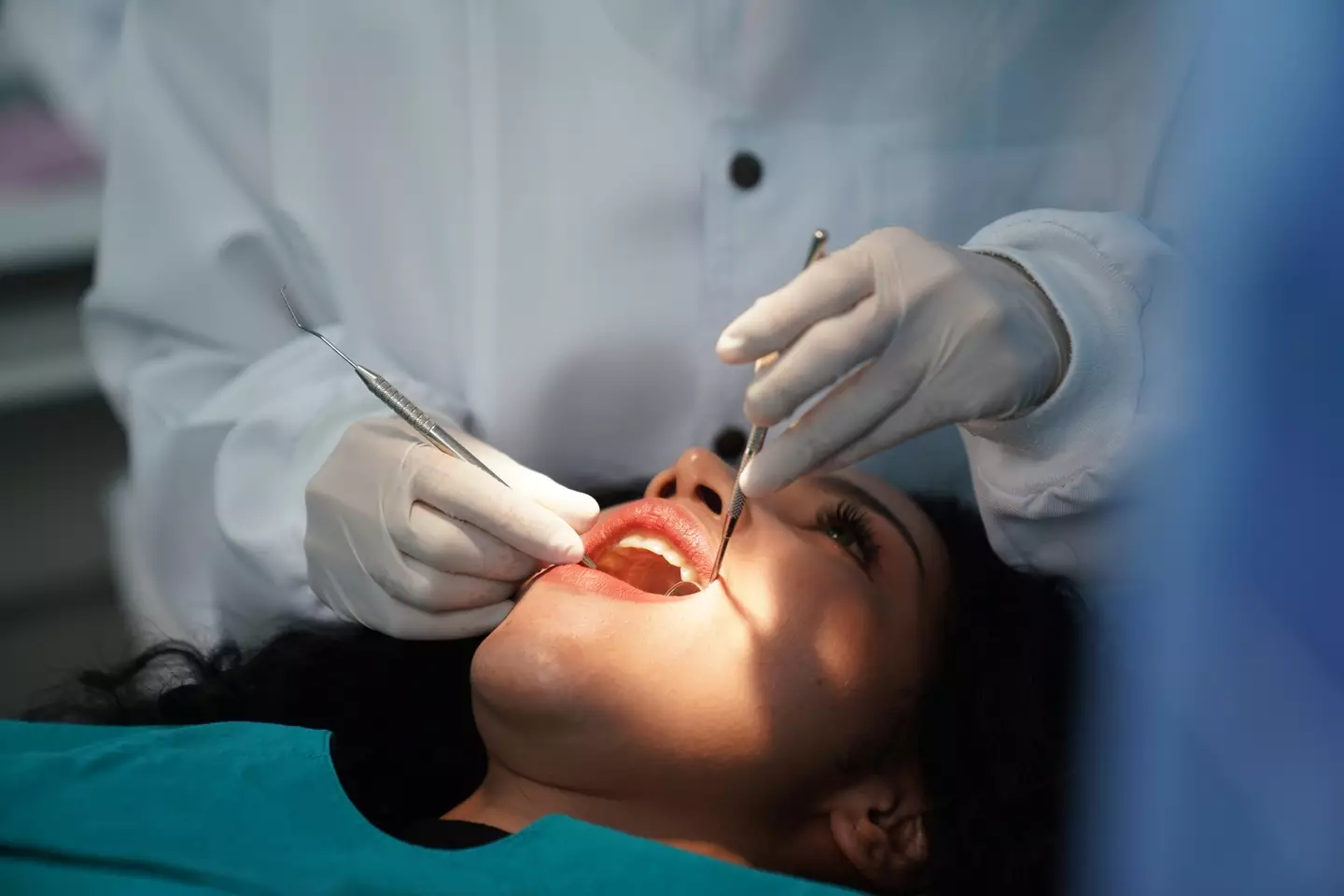
Brushing first thing in the morning is crucial for clearing bacteria. (Getty Stock Images)
Anna isn’t the only dentist to back up this idea either, with fellow social media dentist Doctor Vikas Prinja telling his followers that the body’s saliva production decreases during sleep. As salvia is beneficial to stopping your pearly whites becoming pearly yellows, the lack of it means your mouth becomes a breeding ground for bacteria during the nighttime.
Eating before brushing will only feed the bacteria in your mouth – which is no good for your dental health.
Understandably this is bad news for anyone who enjoys a glass of orange juice with their cereal but we’d argue that a minty breakfast is an acceptable trade off for healthy teeth.
Are there any other common dental mistakes?
So now you know that eating before brushing is a big no-no, it’s time to address another common mistake in our dental routine – when to use mouthwash.
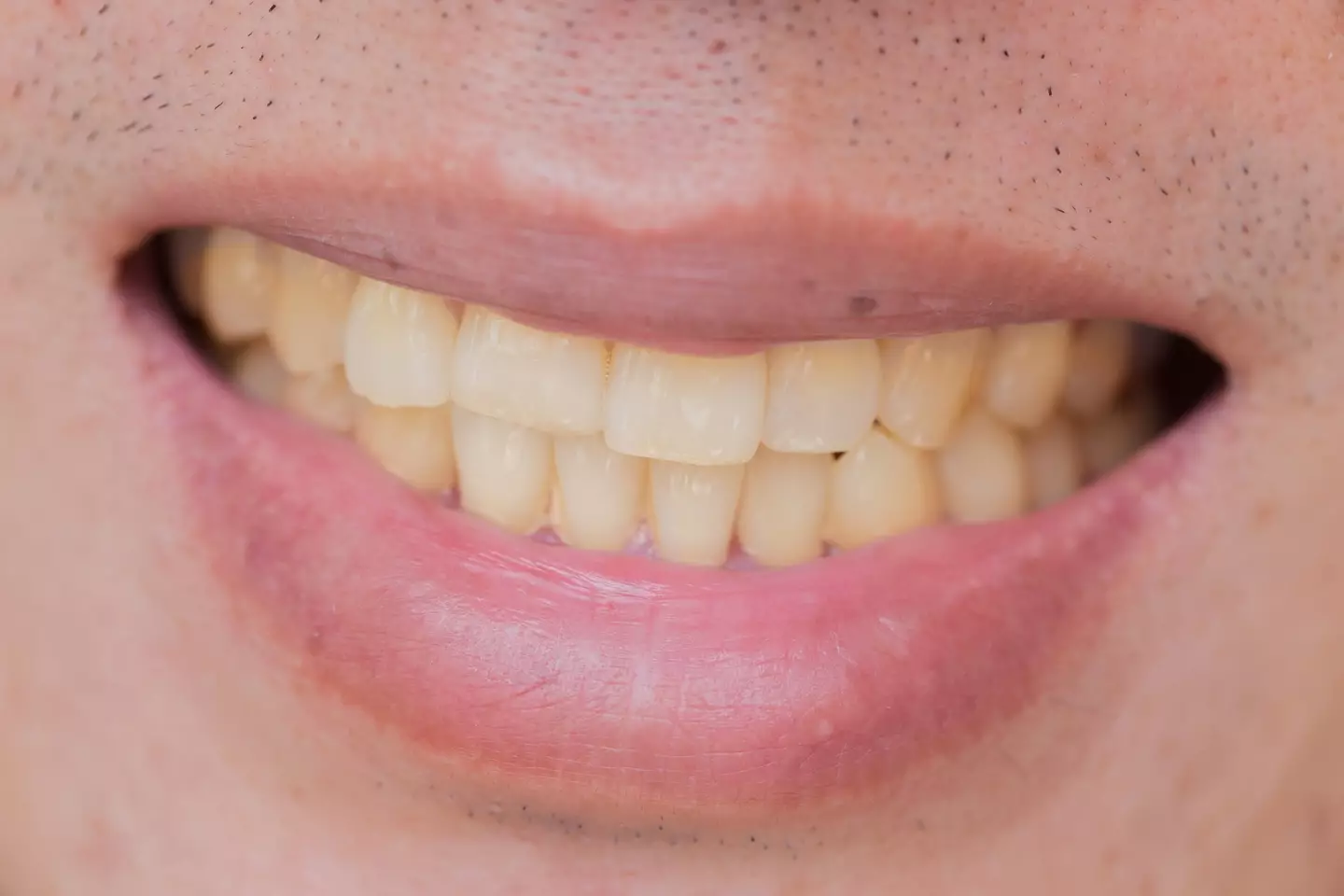
Banishing yellow stains is a very common dental concerns. (Getty Stock Images)
It’s commonly thought that a swig of mouthwash is the perfect way to finish off after brushing and flossing – but not according to dentist Dr Sam Jethwa.
“It is not recommended to rinse directly after brushing your teeth,” he recently told LADBible.
The reason being that mouthwash can remove the fluoride deposited on your teeth by toothpaste, which can lead to weakened enamel and yellow teeth.
“Basically, the more fluoride that remains on the teeth, the better it is for improving the strength of the enamel,” Dr Sam added.
The more you know!
Featured Image Credit: Getty Stock Images
Topics: Health
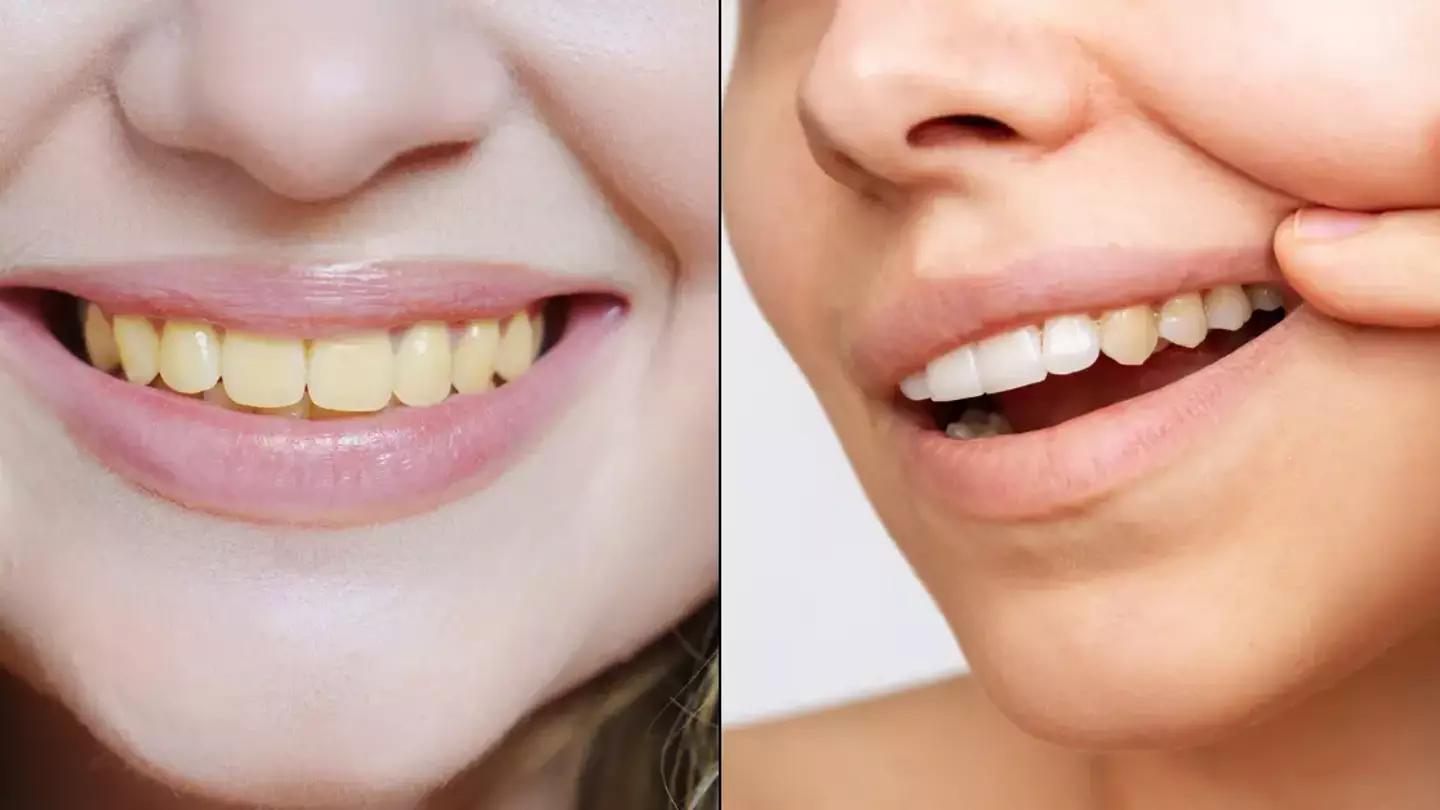
There’s a huge mistake that people are making when it comes to brushing their teeth, and it could save your smile for years to come.
We all know that the way a smile looks can massively change someone’s appearance, so when you find your teeth getting yellow – even though you’re brushing twice a day – it can be very frustrating.
Despite this odd occurrence, many people end up having their teeth whitened regardless, to give them that shiny new smile – but what if you want to keep it natural?
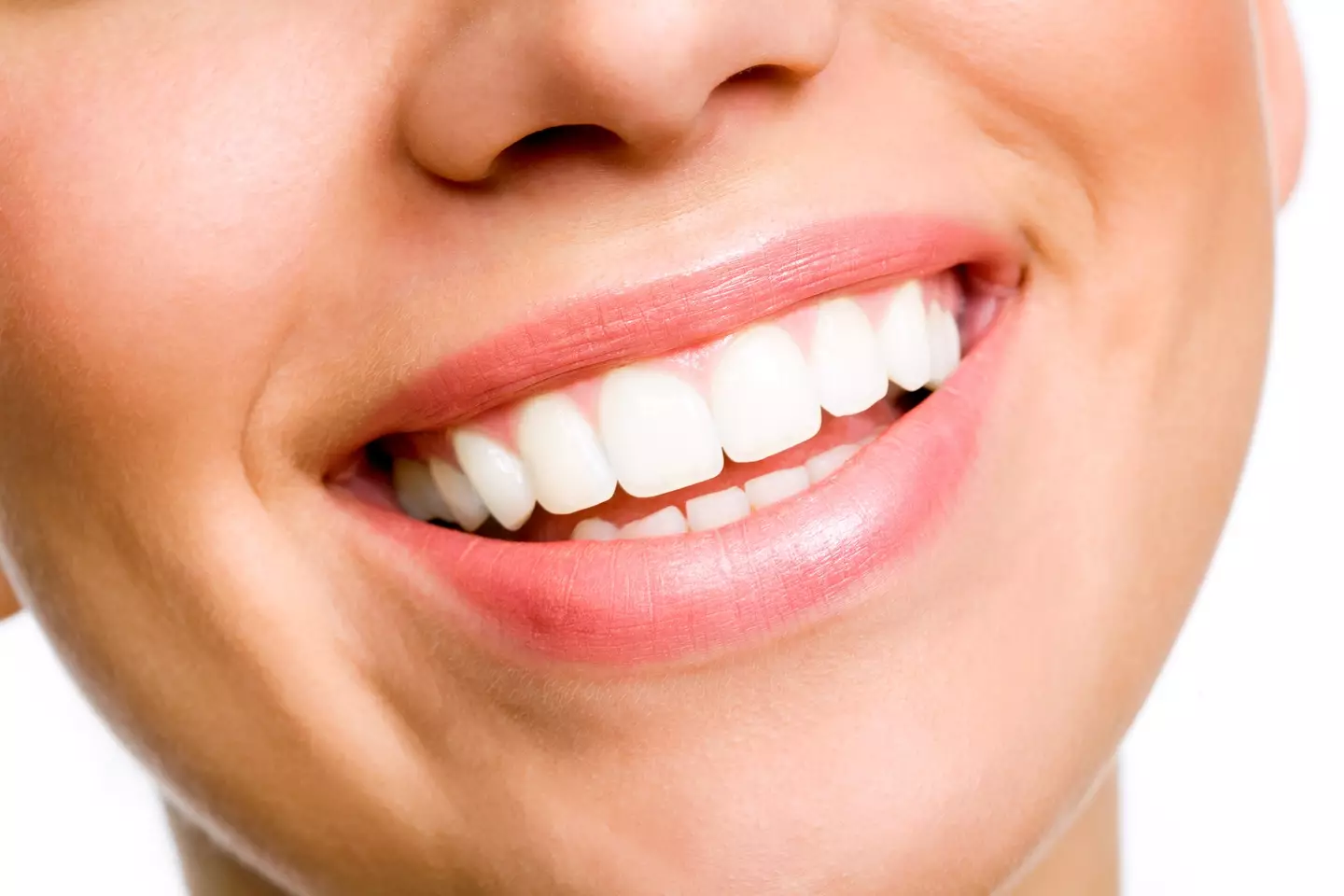
Isn’t this what we all want? (Getty Stock Photo)
Why do teeth go yellow?
The most common reason behind teeth going yellow is ageing, and as much as you want to fight it, this is unavoidable according to Didsbury Dental Practice.
Unless you want to get them whitened, your teeth will turn yellow even if you are incredibly attentive to them, say experts.
The enamel protecting your teeth wears away as time goes on, making your teeth more susceptible to staining.
Some people have less enamel on their teeth in general, meaning that their teeth will become yellow quicker than for those with a thicker layer.
As well as this, factors such as oral hygiene, diet, smoking and medication can affect how easily stained your teeth are – but, what is the common mistake that people keep making that is ruining their gnashers?
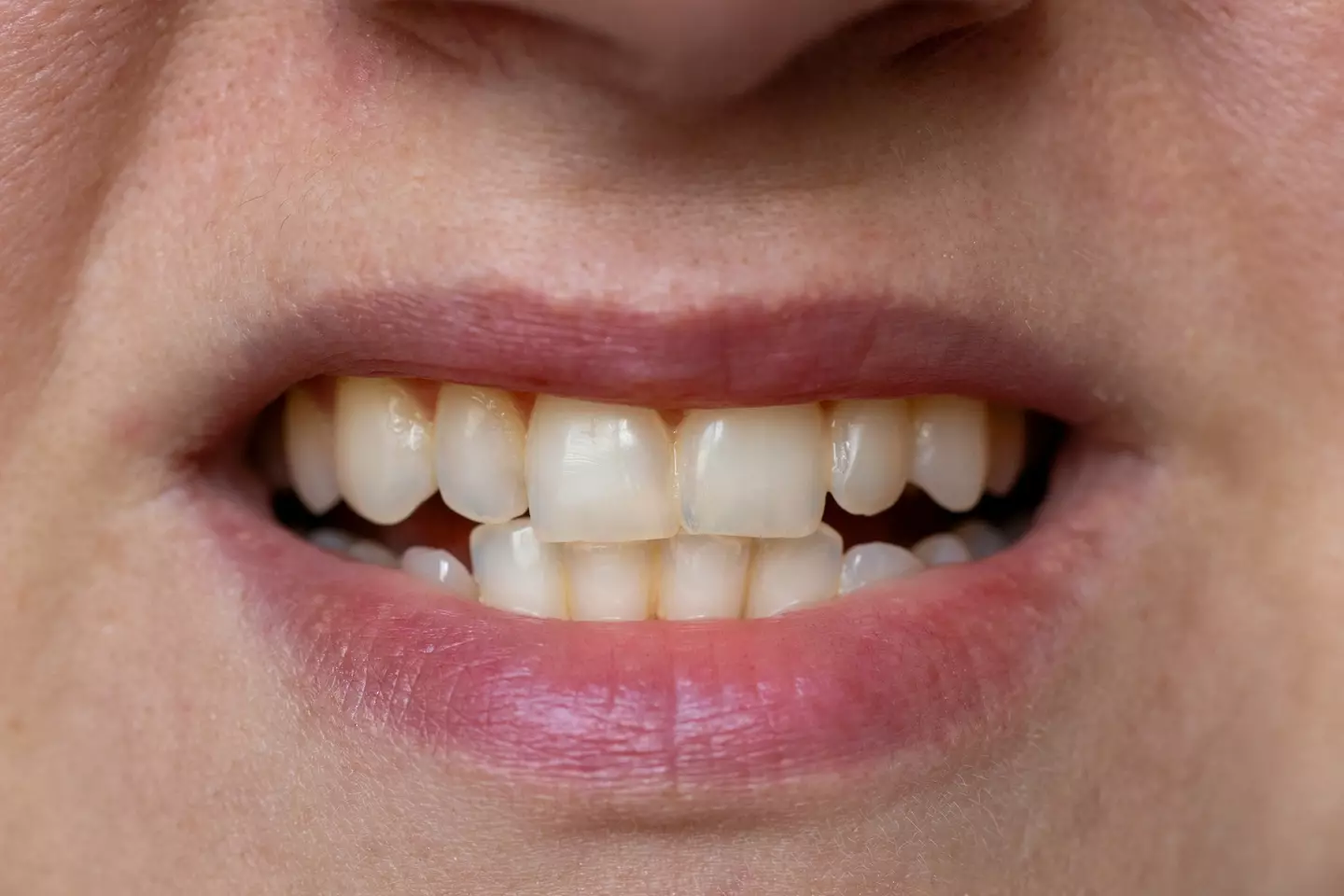
Your teeth will naturally become more yellow over time (Getty Stock Photo)
What is causing teeth to go yellow quicker?
After eating breakfast and having your coffee, you might rush to brush your teeth to get the taste of it all out of your mouth, but it turns out that this may not be the smartest move.
In fact, you should wait at least 30 minutes before brushing or flossing your teeth, as doing it too soon after could actually make your situation worse.
It pushes the harmful acids further into our teeth, which explains why dentists usually recommend soft toothbrushes rather than medium or hard ones, as those can brush your enamel away.
In fact, dentists recommend that you brush your teeth before eating breakfast, as the bacteria that builds up in your mouth overnight will feed on the sugars of breakfast.
But what are the main factors that can affect the colour of teeth?
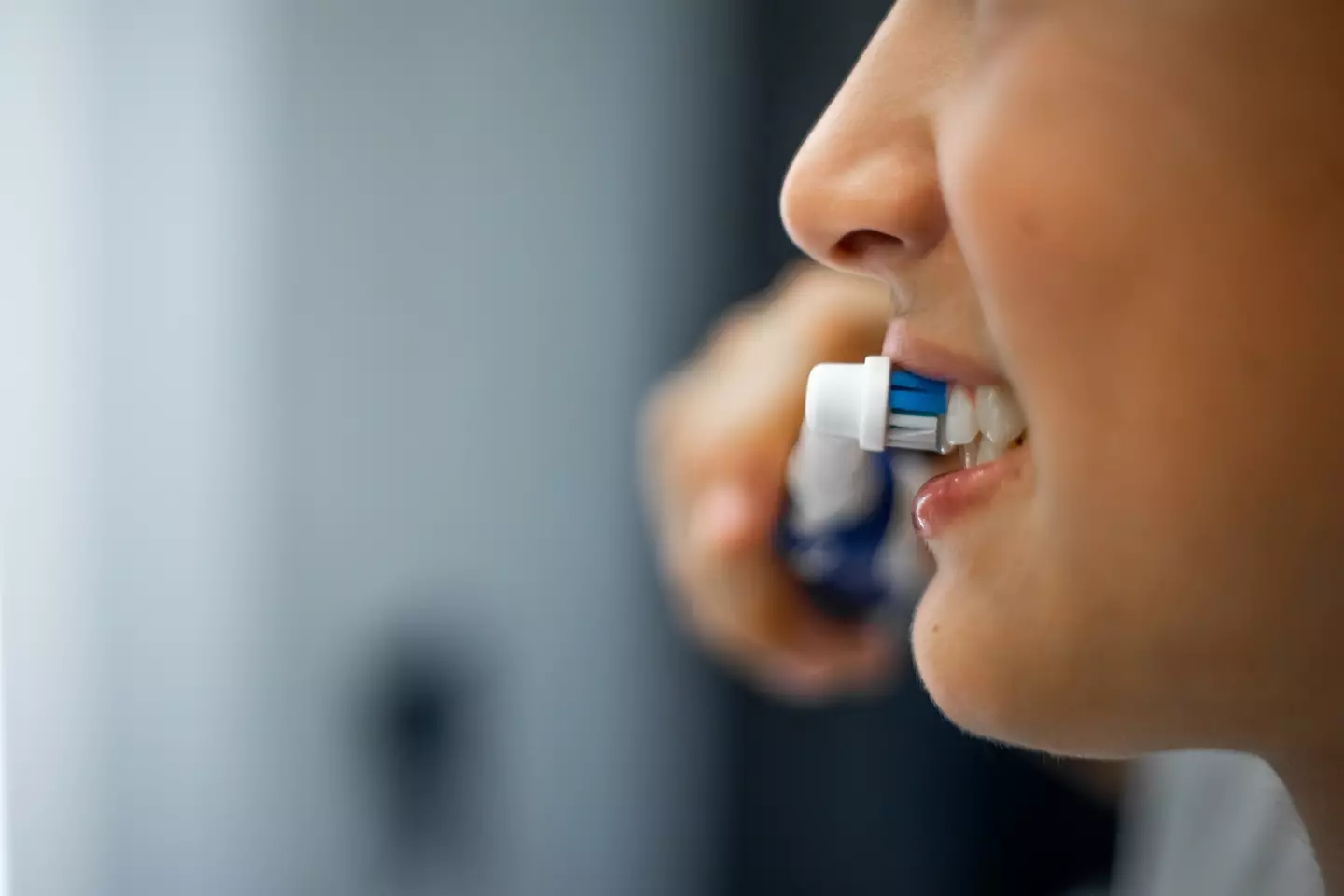
Dentists recommend to brush your teeth before breakfast (Getty Stock Photo)
Food and drink
When it comes to diet, certain foods can cause your teeth to turn yellow by sticking to your enamel, with acidic drinks such as coffee or tea also giving the bacteria in your mouth a naturally staining acid that can harm your enamel and bind the colour to your teeth.
Other foods such as fruit juices, bread, cereal, and pastries, are damaging to your teeth, so the bottom line is that it’s crucial that you brush your teeth before breakfast to avoid discolouration.
Oral Hygiene
Brushing and flossing twice a day is crucial, and can lead to plaque build-up, once again damaging the enamel on our teeth.
Smoking
Smoking is already harmful to our lung and heart health, though it does unsurprisingly also impact the mouth.
Tar and nicotine from tobacco can attach themselves to enamel and cause your teeth to turn yellow over time.
Medication
Certain medication can cause yellowing of the teeth, so it’s always best to look at the list of side effects before using certain medicines.
Featured Image Credit: Getty Stock Photos
Topics: Health, Food And Drink
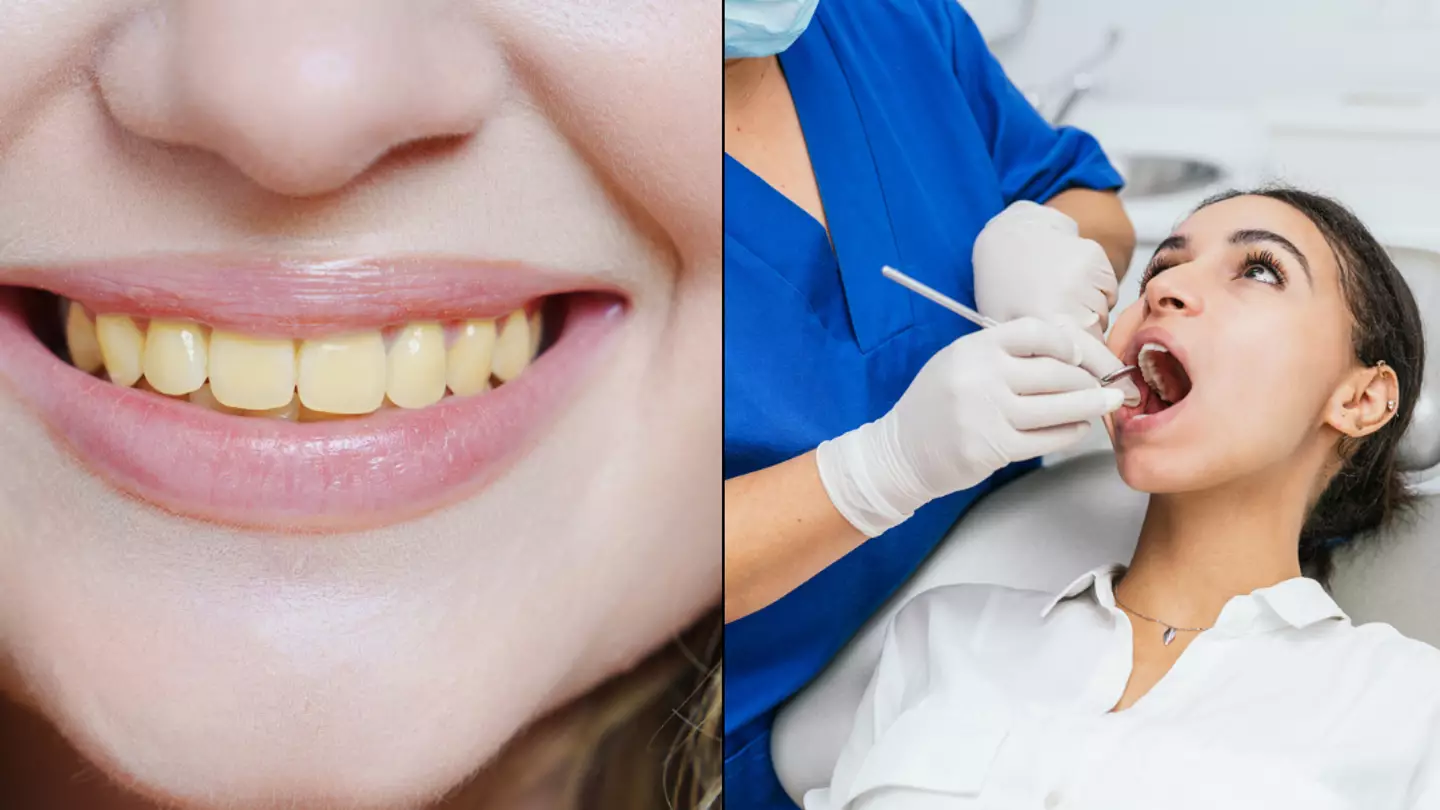
A dentist has flipped your morning brush routine on its head by revealing that a common method people use to whiten teeth is actually doing the opposite.
Doctor Surina Sehgal (@drsurinasehgal), from the UK, has taken to TikTok to reveal the three things you can do to care for your teeth – and we’ve probably been guilty of a few of these.
“Here are three things you are doing that are making your teeth yellow. My name is Doctor Surina, I am a dentist and I’m gonna tell you how to save your teeth,” she said.
Brushing teeth too hard
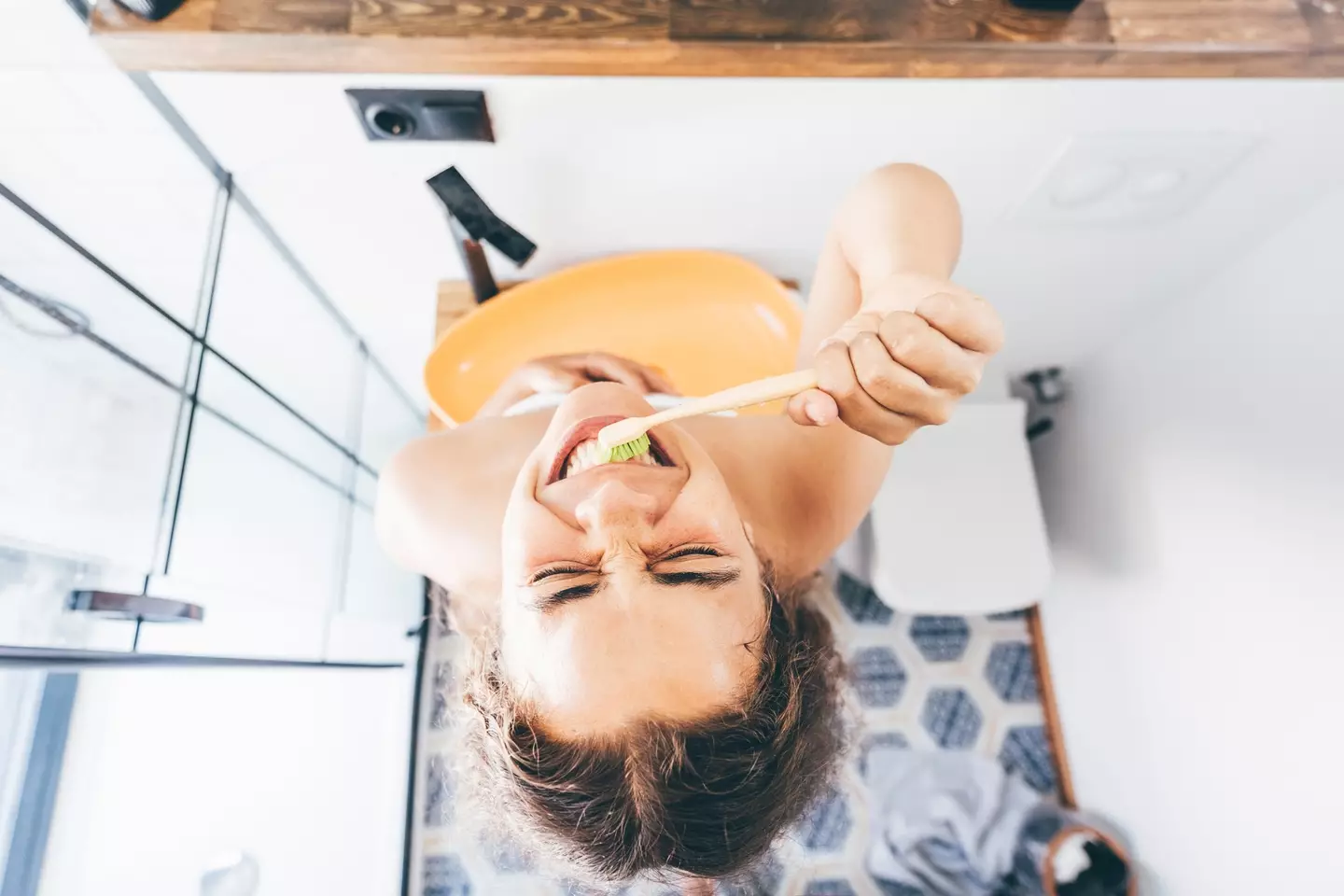
We’ve all probably gone a bit gung-ho while brushing our teeth (Getty Stock Images)
While you think that forcefully brushing your teeth will remove the plaque, it’ll actually do more harm than good.
“Brushing your teeth too hard and using excessive pressure with your toothbrush can actually wear down your enamel,” she said.
“Now, your enamel layer is very white, the layer underneath your enamel is called dentine and that’s very yellow in colour.
“So using excessive force over time will wear down your enamel layer and expose that yellow dentine layer underneath, making your teeth look yellower.”
Having fizzy drinks
Fizzy drinks will also stop you from getting that veneer-looking smile.
“Drinking fizzy drinks are the worst for your teeth because of their acidic nature, she warned.
“Again, it will cause enamel erosion and thinning, exposing that yellow layer dentine underneath.”
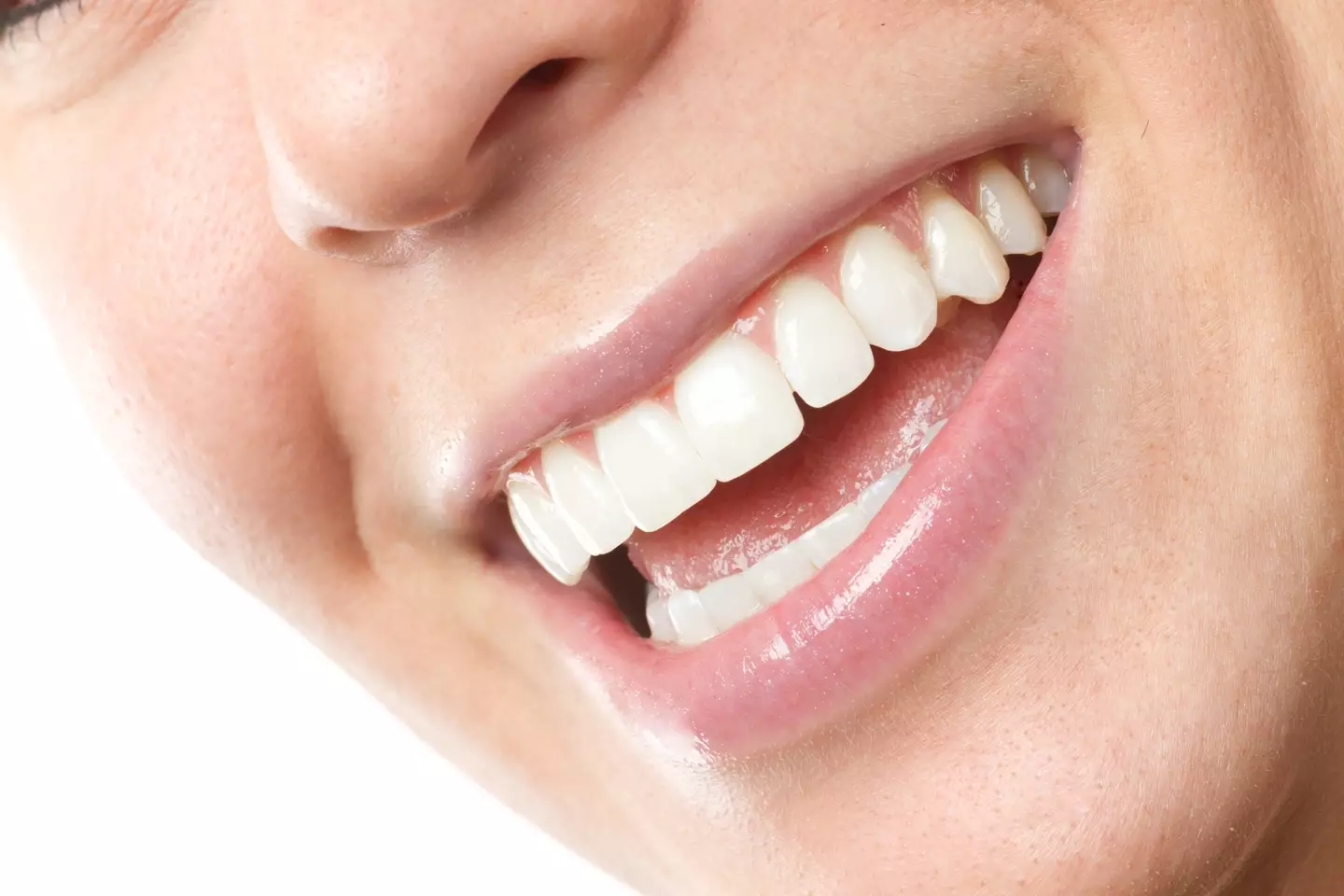
Whitening toothpaste doesn’t do what you think it does (Getty Stock Images)
Using whitening toothpaste
The third and final tip may come as a bit of a shock after many of us (me) sometimes depend on whitening toothpaste to do the job.
Dr Sehgal explained: “Number three is using a whitening toothpaste – now this one may shock you.
“Whitening toothpastes contain very small abrasive particles in them, which help to remove surface stain.
“But over use of them can thin your enamel, exposing that dentine.”
On how to actually whiten your teeth naturally, she advises: “Avoid all these things. Maintain good oral hygiene – brush floss etc. If you want a more drastic change then try whitening with a dentist.”
Taking to the comments, another viewer agreed: “Using too much whitening toothpaste is not a good idea.”
Meanwhile, a second person asked: “Is baking soda safe for brushing your teeth?”
“It is abrasive so can cause enamel wear. I would avoid,” she replied.
“Does the enamel layer repair itself?” a third wrote, as Dr Sehgal responded: “Once enamel has gone it has gone! However you can strengthen it.”
Looks like I’ll be getting some new toothpaste in the morning then.
